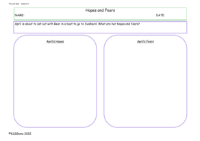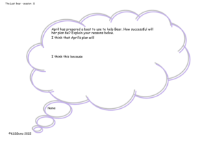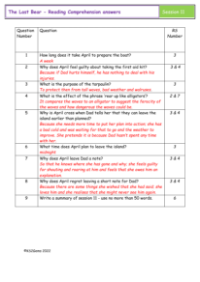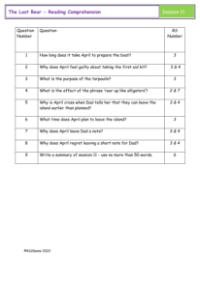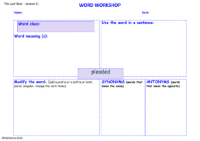The Last Bear - Session 11 - Worksheet
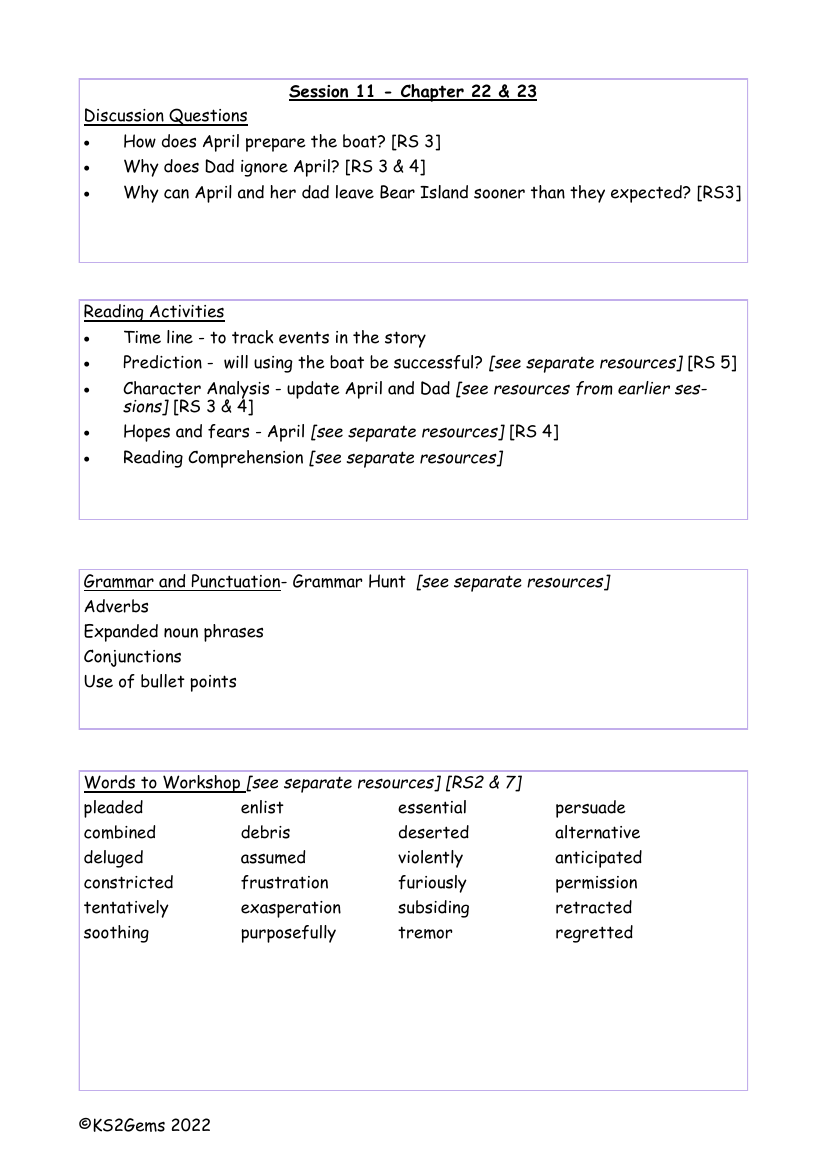
English Resource Description
Session 11 of "The Last Bear" worksheet, aimed at Key Stage 2 students, delves into Chapters 22 and 23 of the story with a range of engaging activities. Discussion questions prompt students to think critically about April's actions in preparing the boat and her father's behavior towards her. They also explore why April and her dad might be able to leave Bear Island earlier than planned. These questions are designed to develop students' reading and comprehension skills, as outlined in the curriculum objectives RS 3 and RS 4.
The worksheet offers a variety of reading activities, including creating a timeline to track events, making predictions about the story's outcomes, and conducting character analysis updates for April and her dad. Students are encouraged to consider April's hopes and fears, and to engage with a reading comprehension exercise. In addition to these activities, there is a grammar and punctuation section where students hunt for adverbs, expanded noun phrases, conjunctions, and the correct use of bullet points. The 'Words to Workshop' section helps to expand vocabulary with words such as 'pleaded' and 'essential'. Writing opportunities include composing letters from April's perspective and instructions for preparing a sea voyage with a polar bear. These tasks are designed to enhance students' writing skills, referencing RS 2 and RS 7 from the curriculum.
The worksheet also outlines cross-curricular links, connecting the themes of the story to subjects such as Science, Computing, History, Geography, Art, Music, Physical Education (PE), Religious Education (RE), and Personal, Social, Health and Economic education (PSHE). These links provide a comprehensive learning experience, encouraging students to explore broader concepts such as global warming, Arctic exploration, and the impact of humans on geography. The session even includes an environmental action activity, where students are encouraged to do a litter pick in their school grounds or local area, reinforcing the importance of environmental stewardship.

